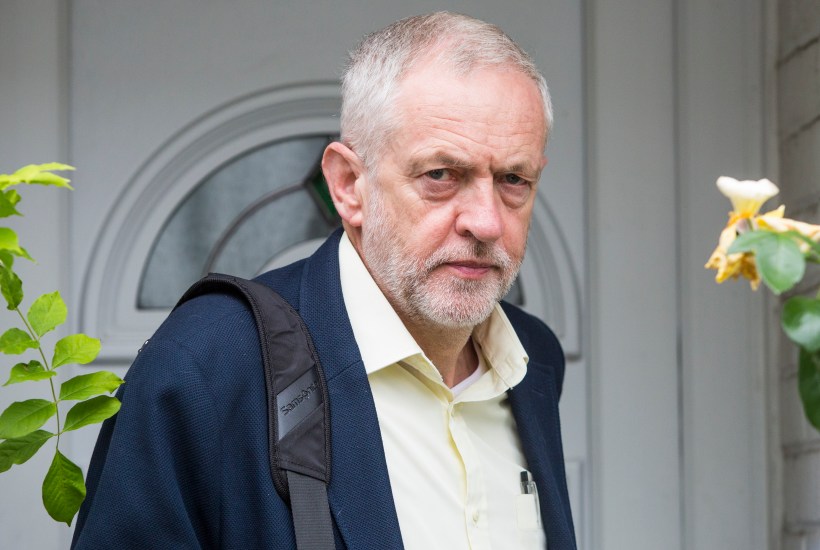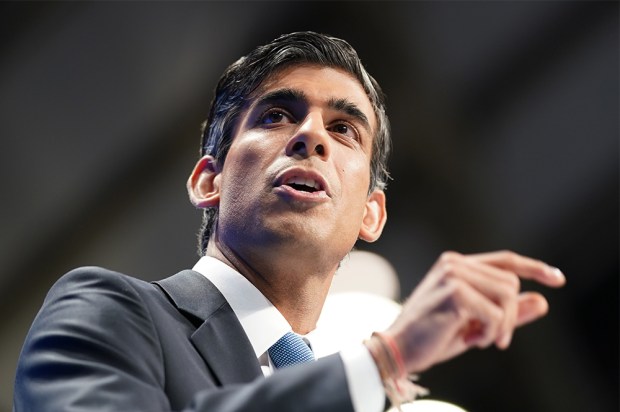The news that Jeremy Corbyn met a Czechoslovakian agent three times during the 1980s, when the Cold War was still very much in progress, has come as a shock to some. But it should not come as a surprise. What we have discovered so far fits entirely with everything we know about Corbyn’s character and his sympathies. He does not appear to have sold secrets, or even to be interested in anything venal. To judge by Czech sources, he was unaware that the man he was meeting was an agent attempting to recruit him. This was at a time when British diplomats were trained to work on the assumption that everyone they met from behind the Iron Curtain was a spy: Corbyn seems to have been blithely unaware of what he was walking into.
But that is the Labour leader all over. He had, and still has, a naive belief in the good of socialism that blinds him to the reality of dictatorships, and to the many millions who have been murdered in its name. Still he champions Venezuela as an example to the world — in the face of mass hunger and a collapsed economy, he has tempered his position only to say that he believes the country made a mistake not to diversify its economy away from oil. The fact that in the 1980s what was then Czechoslovakia was a puppet regime of the Soviet Union, installed with brute force after the crushing of the Prague Spring 15 years earlier, will have been lost on Corbyn entirely.
Will this week’s revelations damage him? The Conservatives would certainly love to believe so, and several of them have tried to make political capital from the affair. They are likely to be disappointed. Corbyn was thought by many to be fatally compromised by his association with Hamas and the IRA — the latter in the wake of the Brighton bomb in 1984. Yet while there are many older voters who believe him unfit for office on the strength of these truths, none of it has rubbed off on the young.
Those who were brought up after the Good Friday Agreement simply do not see why there is such a fuss about being pictured beaming next to Gerry Adams. After all, Bill Clinton and Tony Blair did the same — it is too much to expect the under-forties to put photographs of Gerry Adams in their correct historical context. Similarly, this week’s revelations mean little to anyone who can’t remember the Cold War. To them the Czech Republic is a pleasant weekend destination with cheap beer, not a former authoritarian state. Soviet communism is ancient history.
While Conservatives are fighting the battles of the past, they are losing the battle for the present. This week, the government attempted to relaunch its policy on student tuition fees. Because Corbyn grabbed the initiative last May by committing Labour to abolish such fees in England, the Tories are now talking about making arts degrees cheaper, as if this will win back young voters. Whatever concession is made after May’s year-long review, it will pale alongside Labour’s offer to scrap fees, a policy that’s estimated to cost £100 billion.
A semi-competent Conservative party would have argued that Corbyn’s tuition-fees promise is fiscally irresponsible, and pointed out that it will benefit the middle classes — who are far more likely to go to university — at the expense of lower income groups. They would argue there is no sign of fees deterring students, and that the proportion of disadvantaged students at university stands at a record high. The fees system was accompanied by an expansion of places at English universities, which benefited everyone. And those charging the maximum £9,000 fee are required to plough a chunk of that money back into helping poorer students.
The university-fee system may not be popular but it works. Scotland banned tuition fees for Scots. Today, its universities take so few students (and offer such paltry support with living expenses) that a teenager in a deprived part of Scotland is far less likely to get into university than their English counterpart. But the Tories did not have the wit to make that point.
Instead of making the case for progressive conservatism, and taking the fight to Labour, the Tories are offering Corbyn the terms of their intellectual surrender. They resort to name-calling, and then policy–copying: an unedifying combination. For example, they derided capping energy prices as a crazed idea from the 1970s — then decided it was a great idea to be copied in the 2017 Conservative manifesto.
Socialism, as has been proven in every case where it has been tried, is a route to the impoverishment of the masses. It destroys incentives, puts capital to chronically inefficient use and distorts the economy to the point of creating shortage or surplus. But Corbyn-supporting young voters do not see him as a revolutionary nor even link his policies with past, disastrous socialist experiments. To them, what he is offering is far more attractive than what the Conservatives are offering. If the Tories want to remain in power, they will have to understand this failing. They need to stop fighting Corbyn on his past and start engaging in the battle of ideas in the present.
Got something to add? Join the discussion and comment below.
Get 10 issues for just $10
Subscribe to The Spectator Australia today for the next 10 magazine issues, plus full online access, for just $10.
You might disagree with half of it, but you’ll enjoy reading all of it. Try your first month for free, then just $2 a week for the remainder of your first year.














Comments
Don't miss out
Join the conversation with other Spectator Australia readers. Subscribe to leave a comment.
SUBSCRIBEAlready a subscriber? Log in